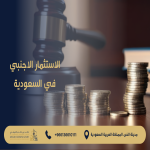Inheritance Settlement according to Islamic Sharia in Saudi Arabia
The settlement of estates according to Islamic Sharia rules in Saudi Arabia is an essential matter that heirs need to understand to know their rights and the mechanisms of settlement clearly and justly. The system requires the settlement of estates by distributing assets and funds among heirs after ensuring that all financial obligations of the deceased are settled. These obligations include debts, loans, and other financial rights.
Definition of the Estate
An estate refers to everything a person leaves behind after death, encompassing both tangible and intangible financial assets, including movable properties like cash, vehicles, and jewelry, as well as immovable properties such as land and real estate.
The estate is divided into:
Tangible Assets: Real estate, vehicles, personal properties such as jewelry, and other similar assets.
Intangible Assets: Intellectual property rights, copyrights, business goodwill, patents, lease contracts, licenses, client lists, and others.
The rights associated with the estate are arranged as follows:
1.Preparing the deceased for burial.
2.Settling debts, prioritizing those associated with specific assets in the estate.
3.Executing any will left by the deceased.
4.Dividing the remaining estate among the heirs.
Main Types of Estate Settlement in Saudi Law
Cash Assets
Real Estate
Movable Properties
Estates with Debts
Mortgaged Estates
Estates for Non-Saudis
Diverse Estates
Estates for Heirs with No Known Beneficiaries
Settlement by Heirs’ Agreement
Court-Ordered Settlement
Procedures for Dividing an Estate
According to Article (199) of the Personal Status Law, estate settlement procedures require:
Issuance of the deceased's death certificate.
Extraction of an official inheritance affidavit, which details all individuals entitled to a share of the estate.
Inventory of the estate: An assessment is conducted of all the deceased’s properties, including real estate, cash assets, movable assets (such as vehicles and furniture), and company shares or stakes.
Types of Estate Division
Agreed Division: This occurs when all heirs mutually agree, without court intervention, on how to distribute the estate among themselves, so that each heir's share is determined in a way that satisfies all parties.
Mandatory Division: This happens when one of the heirs applies to the court for a mandatory division of the estate in the absence of consensus among the heirs on distribution. It may also occur if a minor is involved, requiring the court’s intervention to resolve disputes and distribute the estate mandatorily.
Exclusions from Inheritance
According to Article 200 of the Personal Status Law:
1.Anyone who intentionally kills their predecessor, either directly or as an accomplice, cannot inherit.
2.Anyone who instigates or orders the killing in an act of aggression or quasi-intentional killing is disqualified from inheritance.
3.There is no inheritance between individuals of different religions in the following cases:
When the deceased is Muslim, and the heirs are non-Muslim.
When the deceased is non-Muslim, and the heirs are Muslim.
4.There is no inheritance among deceased individuals if their death occurred simultaneously, or if it is unknown who died first.
In Conclusion
The settlement of estates is a critical process that ensures justice among heirs according to Islamic Sharia and Saudi regulations. Choosing the appropriate type of division, whether through mutual agreement or a judicial division, depends on the level of consensus among heirs and the nature of the assets within the estate. Regardless of the division method, the primary goal is to protect the rights of heirs and avoid disputes that could impact family relations by adhering to legal procedures and documenting all agreements.





